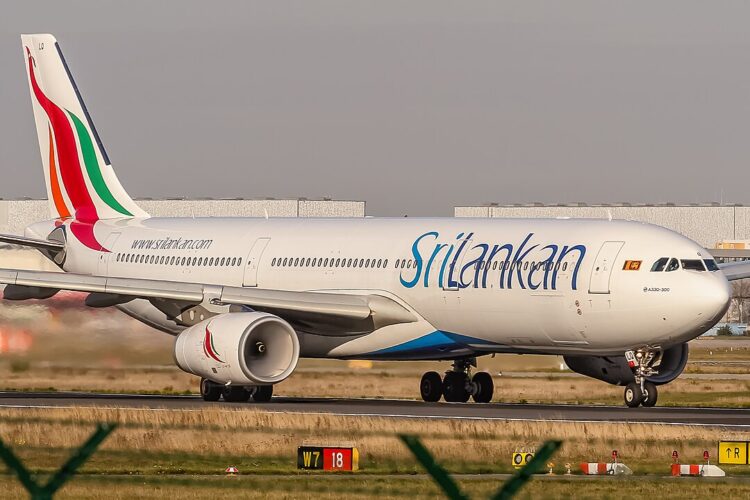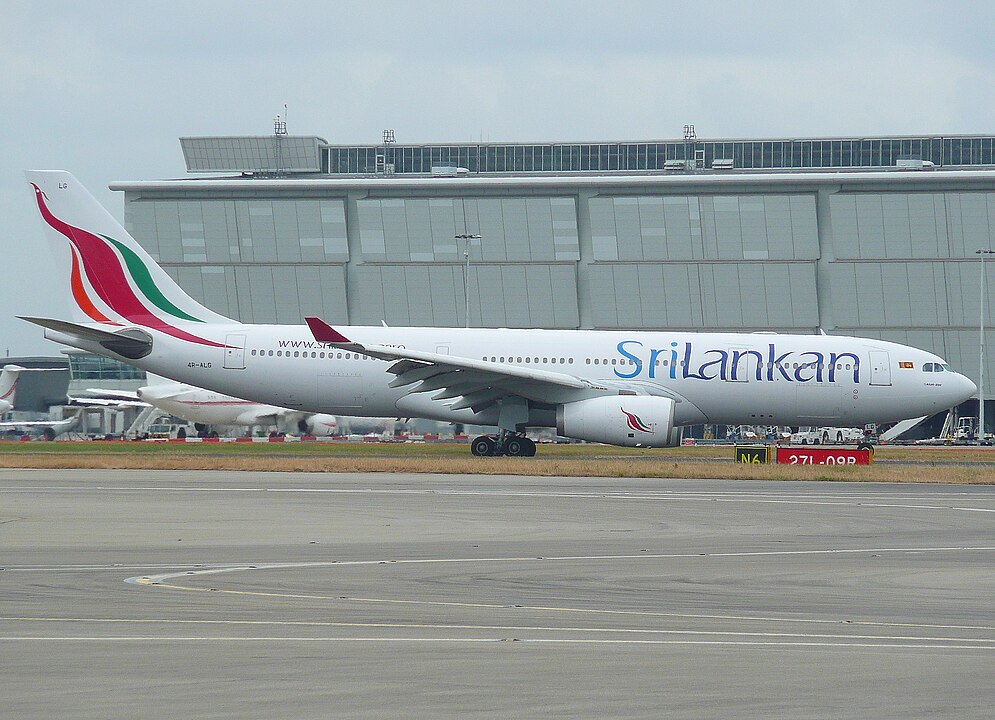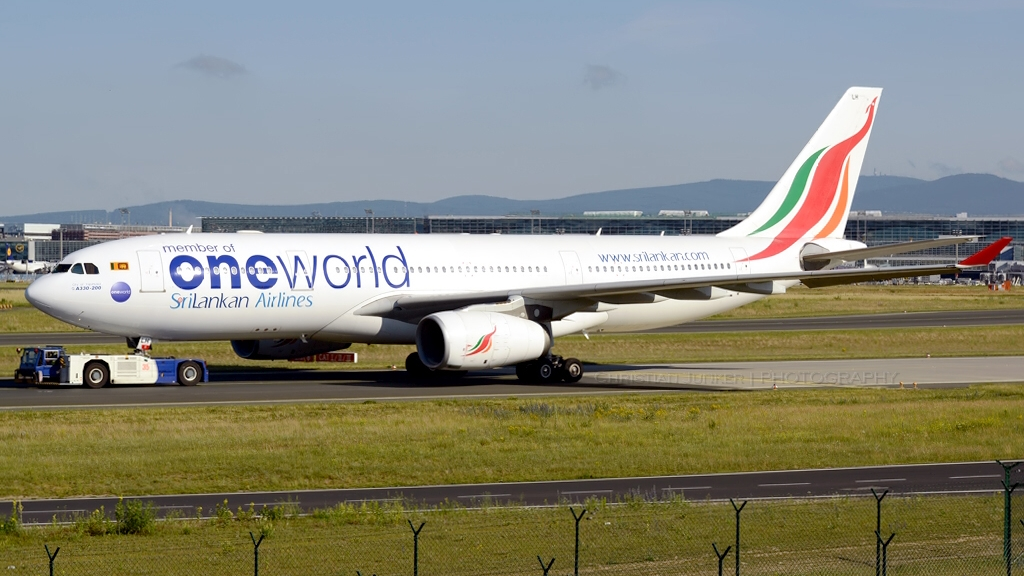Local adoption of the ICCPR Convention – a cunning enactment; works against Sinhala Buddhist activists and soft on Tamil separatist racists
August 12th, 2023Chanaka Bandarage
The International Covenant on Civil and Political rights (ICCPR) came into being in 1976. It is a multilateral treaty. More than 175 states have thus far ratified it.
The treaty imposes obligations only upon states – the parties to the Covenant (hereinafter, ‘the Convention’).
Eg. In the US, the Convention only applies to the US government’s actions in all states and counties and to private contractors who carry out US government functions. It does not operate against individuals.
The purpose and objective of the Convention is to keep governments constantly under checks and balances in relation to their human rights record on citizens.
The treaty does state in the Preamble that individuals have duties and responsibilities to other individuals and to the community that they belong.
It is wrong for a country that is a party to this Convention to adopt the Convention domestically with the primary intention of punishing its citizens who engage in alleged human rights violations. The writer states that Sri Lanka has done exactly that. In the local enactment, Sri Lanka has not adopted most of the duties and responsibilities that it undertook in the Convention for its citizens.
The cardinal rule in international law is that the domestic adoption of a treaty should substantially mirror the obligations that the state has vouched in the international Convention/treaty.
This means, when the treaty is domestically adopted, the state reiterates its obligations enunciated in the Convention/treaty.
This is how the nations have adopted this treaty domestically.
Sri Lanka acceded to the treaty on 11 June 1980. But, one could correctly argue that the adoption of the ICCPR treaty obligations was domestically done by the 1978 Constitution. Eg, Article 14 of the Constitution which has 9 sub Articles (14a) – (14i):
14. (1) Every citizen is entitled to – (a) the freedom of speech and expression including publication; (b) the freedom of peaceful assembly; (c) the freedom of association; (d) the freedom to form and join a trade union; (e) the freedom, either by himself or in association with others, and either in public or in private, to manifest his religion or belief in worship, observance, practice and teaching; (f) the freedom by himself or in association with others to enjoy and promote his own culture and to use his own language; Freedom of speech, assembly, association, occupation, movement; (g) the freedom to engage by himself or in association with others in any lawful occupation, profession, trade, business or enterprise; (h) the freedom of movement and of choosing his residence within Sri Lanka; and (i) the freedom to return to Sri Lanka.
Article 14 along with Articles 10, 11, 12, 13, (and 14A – enacted in 2015) of the Constitution are some of the obligations that Sri Lanka has vouched in the Convention.
Put simply, though some key obligations are missing, Articles 10 – 14 and (14A) of the Constitution very clearly reflect our human rights obligations of the Convention.
Articles 10 – 14 and (14A) are very powerful provisions. One can bravely say that they are in effect our ‘Bill of Rights’.
Very few countries can boast of granting so many rights to their citizens through the Constitution. Australia still does not have a Bill of Rights embodied in their Constitution. Instead, they have a powerful set of separate human rights Acts.
As through our Constitution we enjoy so much of fundamental rights that are enunciated in the Convention, it is not unfair to say that the government in 2007 ‘cunningly’ used the ICCPR Convention to enact the new local Act – International Covenant on Civil and Political Rights (ICCPR) Act, No. 56 of 2007 (hereinafter the ICCPR Act); its substantive intention was to prosecute its own citizens who are engaged in racial/religious vilification etc.
The government had every right to enact such legislation, it erred in portraying the new Act as the local version of the Convention. It gave the Convention’s name to the new Act.
If a government commits gross human rights violations against an individual, the aggrieved party is able to bring-in civil law action against that government for breaching its Convention obligations. The current ICCPR Act does not allow citizens such a compensation regime/relief mechanism.
Fortunately, they can claim compensation/relief from the government through other avenues – eg. applying for equitable writs in the Court of Appeal, the citizen’s right to bring in a fundamental rights application against the government as provided by Article 126 of the Constitution.
To illustrate how individuals can use the ICCPR Convention to its own, utmost advantage –
This writer initiated 2 class actions in the Federal Court of Australia in 1997 against the then Australian government, using the ICCPR Convention. They were:
Phillip Ruddock v Gamini Wasantha (in the Federal Court’s Canberra registry) – number of plaintiffs, about 50 Sri Lankan nationals. This matter was later transferred to the Sydney registry.
Phillip Ruddock v Naomal Fernando (in the Federal Court’s Melbourne registry) – number of plaintiffs, about 150 Sri Lankan nationals.
Later, both cases were merged into one.
The course of action arose upon the then Australian Immigration Minister (Mr Phillip Ruddock) revoking a humanitarian visa issued to Sri Lankan citizens living in Australia. It was the subclass 435 visa.
The Minister issued a regulation ordering the Sri Lankans who were on that visa to depart Australia within a matter of few weeks.
The subclass 435 visa was a special visa issued only to Sri Lankans to remain in Australia for an indefinite period of time owing to the violent civil wars that prevailed in Sri Lanka then, particularly the JVP insurrection. Sri Lankans who had arrived in the country in early 1990s as tourists, students and on few other visas were upon application issued with the subclass 435 visa. They were allowed to work, and were entitled to Medicare.
This writer was approached by the Sri Lankans who were unfairly affected by this regulation. He drafted applications in the Federal Court of Australia alleging that by revoking the subclass 435 visa the Australian government breached its obligations owed to the subclass 435 visa holders. Effectively, Australia acted contrary to the ICCPR Convention, which it was a signatory.
The Australian courts accepted the applications and the writer argued the matter successfully for several years in Australian Courts.
The Sri Lankans were happy; most of them are now well settled in in Australia.
This is a classic illustration as to how the ICCPR Convention operates to individuals benefit.
Rather than codifying all of its Convention obligations upon itself (so that the citizens human rights are protected), what Sri Lanka did in 2007 was imposing sanctions against its citizens.
The Convention is designed to embark on good governance by the states; Sri Lanka’s ICCPR Act is primarily designed to punish its citizens who breach it.
Proponents of the ICCPR Act state that the government in 2007 correctly adopted the Convention; only Articles 19 and 20 of the Convention were correctly used by it to enact section 3 of the domestic Act (the ICCPR Act’s main provision).
With respect, this understanding is wrong:
Firstly, the Convention’s Article 20 is the local Act’s section 3. Secondly, the Article 19 has not been adopted.
Section 3 reads as follows- ‘No person shall propagate war or advocate national, racial or religious hatred that constitutes incitement to discrimination, hostility or violence.’
Note, Article 20 of the Convention is not specifically directed upon individuals/citizens.
This section 3 encompasses a high criminal element. Individuals who breach this section could be sentenced up to 10 years in jail (note, a person who engages in rape/sexual assault receives a jail sentence only from 7 – 20 years).
Per section 3, that person can be arrested without a warrant and bail can be granted only by the High Court, that is also in exceptional circumstances.
This is clearly a very high handed adoption of the Convention.
It is clear that the Articles 19 and 20 relate to civil procedure – that the Convention never intended to impose criminal sanctions against those who breach Articles 19 and 20.
The writer is unaware of any other country that has turned round the Convention so dramatically to suit their own ulterior objectives. Again, here, under the domestic Act, rather than using the Convention as a guide to uplift its own human rights conduct, the government uses it to punish its own citizens criminally.
Effectively in Sri Lanka, the government has tinkered the Convention to fulfill its bad, ulterior objective – hound down those whom it does not like.
Our Courts are bound to follow the law as prescribed by legislation, enacted by the legislature. Thus, the Courts cannot be criticized for dealing with and sanctioning individuals who have committed offences under the local ICCPR Act. The Courts are innocent in this instance.
There are cases before the Courts brought under the Act, the writer does not at all intend to discuss them/their merits.
Article 14 (a) of our Constitution is very clear about the Citizen’s Right to Freedom of Speech. The local ICCPR Act seems to be in conflict with this. In such a situation Article 14 (a) should prevail over the domestic ICCPR Act’s provision(s), to the extent of the inconsistency.
Of course, no one should be given a free hand to denigrate religions and great religious leaders. The duty of the government is to enact special laws to prosecute those who commit such offences. They are the blasphemy laws. We already have some. Eg, sections 291A and B of the Criminal Code, to mention a few.
If a person constantly utters filthy, obscene language against another in public (say, using social media); it is a despicable act. The whole society should condemn and castigate that person.
But, if he/she has not done anything to cause communal/religious disharmony, how can he/she be charged under section 3 of the ICCPR Act? They are not serious enough offences to send a person to jail. He/she may be charged under Common Law’s breach of public nuisance. The aggrieved people can sue him/her in civil defamation.
Is section 3 a re-introduction of criminal defamation in Sri Lanka in disguise? The government must come in the open and clarify.
Rather than sending to jail, such unfortunate people should be assigned to an asylum for substantive mental health treatment.
In the last 30 years it has become increasingly difficult for a Sinhala Buddhist to stand up to fight for their own justice. The words ‘Sinhala Buddhist Rights’ have somewhat become prohibited words in this country. So much ethnic hatred is propagated by separatist Tamil MPs/Politicians/Tamil Diaspora – not only when they are in western countries but also inside Sri Lanka. These people constantly utter utmost racist remarks and engage in serious racist acts. The writer is in possession of a dossier of such conduct.
They are the biggest obstacle to foster positive ethnic relations. Even Buddhist monks have been barred from visiting ancient Buddhist temples in the North and the East. Buddhist artifacts are being destroyed in the North and the East on regular basis.
To the writer’s knowledge, in the recent past, these racist culprits have not been kept in remand custody after arrest for substantial periods of time (under the ICCPR Act or any other law). If he is wrong, he is ready to accept.
The Sinhalese have been denied the right to settle in Tamil speaking areas of the North and the East. Basically, the Sinhalese are confined to only 7 provinces of this tiny island (just 2/3 land mass). This inhibits the expansion of the Sinhala race as opposed to Tamil and Muslim races.
Tamils and Muslims can live anywhere that they wish. This is alright.
The Sinhalese are not only discreetly estopped from purchasing land in the North and the East, they are even prevented from obtaining land on lease. This is Sri Lanka’s biggest human rights violation today.
This is propagating discrimination against the Sinhalese – a major breach of the section 3 of the ICCPR Act.
The inability of the Sinhalese to live in the North and the East is also contrary to Article 14 (h) of the Constitution, and customary international law.
No one dares talk about this; even the Maha Sangha. Everyone demonstrates an eerie silence about it. One reason for this is that as stated earlier, fighting for Sinhala Buddhist rights is somewhat a taboo in contemporary Sri Lanka. Such people are castigated and downgraded sometimes by the Sinhalese themselves.
People are so scared that the local ICCPR Act would operate and hound them down. There are examples where Sinhala activists have been unfairly arrested under the local ICCPR Act and under other laws.
Suppression of the Sinhala Buddhist culture and values greatly escalated in the last 30 years, mainly thanks to the politicians who governed the country and majority of the electronic media that is very much anti-Sinhala Buddhist. Now, the social media has also taken up this mantle. Buddhist monks are constantly referred to as ‘Yellow Pests or Pets’ .
And, we proudly proclaim we have the Article 9 to protect and foster Buddhism!
Due to the deliberate bad impression that is being created about ‘Sinhala’ and ‘Buddhism’, children and young people continue to stride away from our great Sinhala culture, values, behaviours and Buddhist teachings/education. They are being fast attracted into other cultures and religions, in a massive way. A good example is the rise and rise of the evangelical groups/cults in this country, like the Born Again, Jehovahs, Adventists, Mormons, Pentecostals etc.
No wonder that the Sinhala race especially the Sinhala Buddhist is sliding down. It is not a dying race, but certainly would become a minority of this land, quite likely within this 21st century.
ethos8@bigpond.com
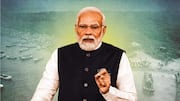
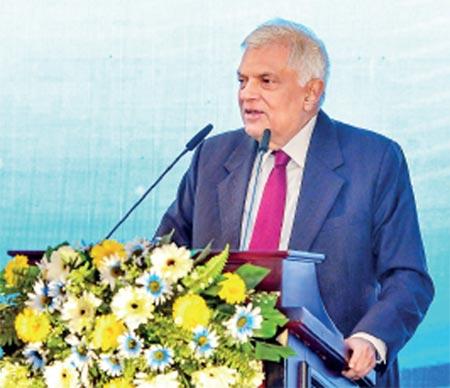 Amid the current human capital shortage, in particular the science, technology, engineering and mathematics (STEM) graduates increasingly looking to migrate, the government said it has plans to establish a number of new universities and vocational training centres with greater participation of the private sector on an urgent basis.
Amid the current human capital shortage, in particular the science, technology, engineering and mathematics (STEM) graduates increasingly looking to migrate, the government said it has plans to establish a number of new universities and vocational training centres with greater participation of the private sector on an urgent basis. 